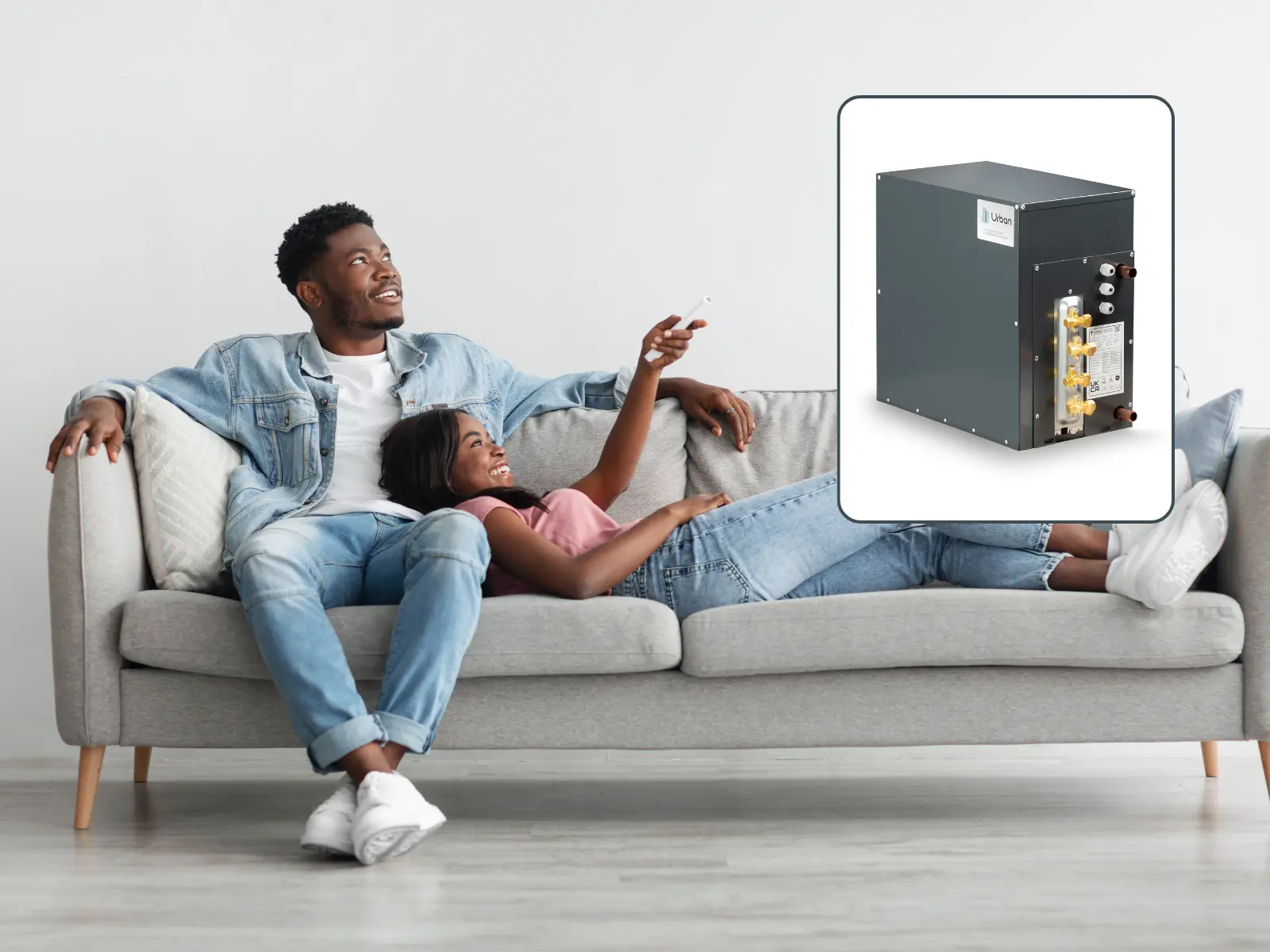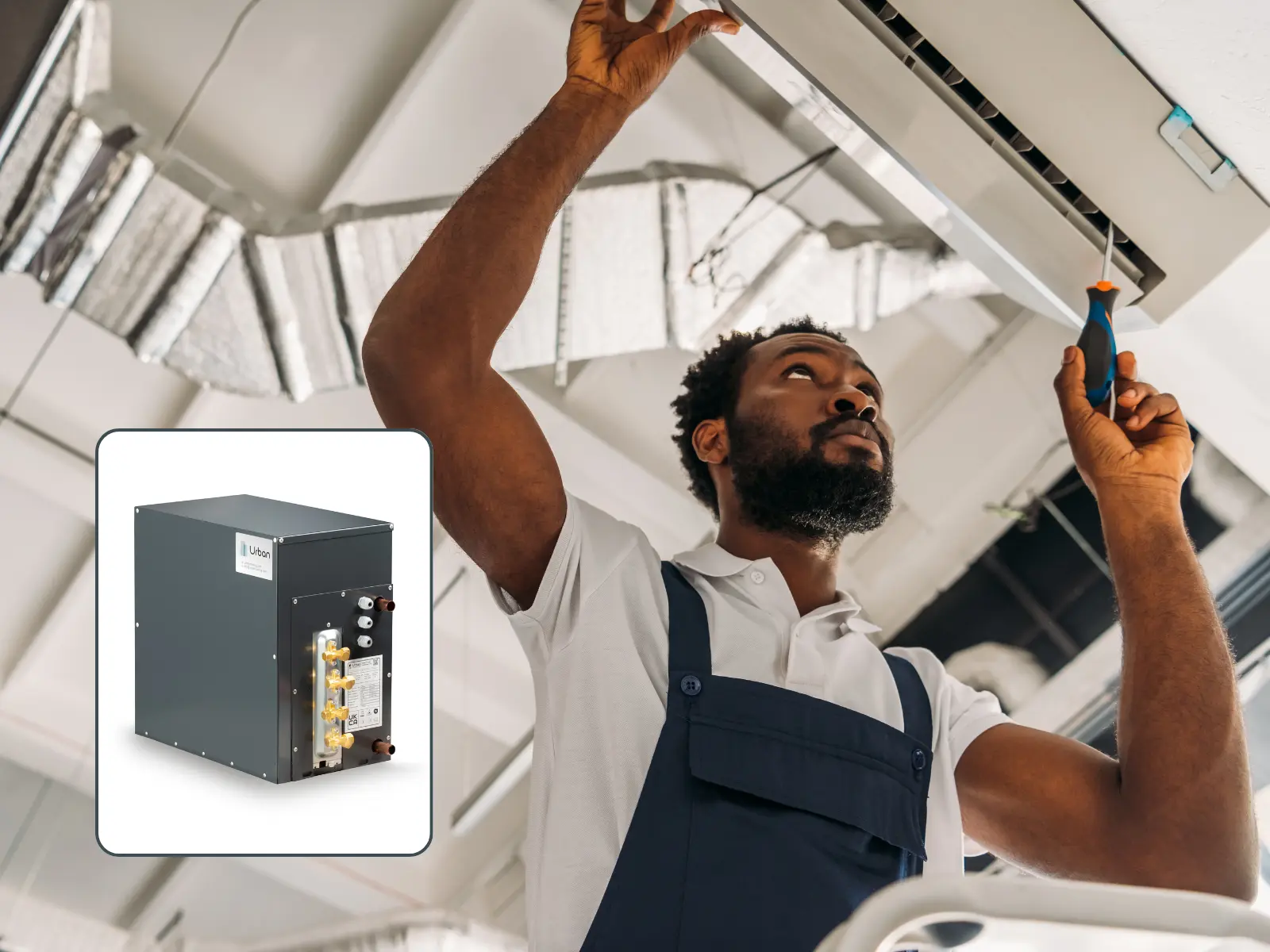Pollution and air quality aren’t just outside issues. The air quality in your home can actually be worse than the air outside – up to two to five times worse in fact – with indoor pollution coming from a whole host of things.
Poor internal air quality can have a negative effect on your health, resulting in skin irritation and making allergies or respiratory illness worse. In fact, around 50% of illnesses can actually be caused or made worse by indoor air pollution, so it isn’t just those with asthma or allergies who need to be concerned.
When you consider the fact that we can spend up to 90% of our time inside, the quality of the air inside your home is more detrimental to your health than external air pollution.
But what causes poor air quality in your home and how can you improve the air quality in your home?
-min.avif)
What Is In The Air In Your Home
The air quality in your home can include a lot of pollutants that you can’t see. Things like exhaust fumes, dust, smoke, carbon, fibres and pollen can all get inside your house through open windows or doors, meaning that outdoor pollution does have an impact. However, there is also a lot inside your house that can contribute to poor air quality.
From odours and gases to Volatile Organic Compounds (VOCs) and microorganisms, items in your house give off a lot of things things that can make the air worse and impact your health.
Airborne Particles
Sometimes airborne particles can be seen – such as pet hair or dust – but there are other smaller particles that you can’t see so you don’t know they are there. This includes pollen, plant matter, carbon and exhaust fumes.
Some of these will come in from outside but others are created by items in your home, such as your furniture. These particles or particulate matter (PM) are not good for your health, with some (PM2.5 particles) being small enough that they remain suspended in the air for longer. They are also so small that they can get deep into your lungs or bloodstream and so they are associated with heart and lung conditions.
Household Odours And Gases
Not only does a clogged sink or full bin not smell great, but they can also negatively affect your home’s air quality. The same goes for chemical odours, such as those from cleaning products. All of these odours can cause reactions and even temporary symptoms like nausea and headaches.
Similarly, gas, such as the gas used for cooking, can also contribute to poor air quality. Research has found that gas ovens contribute to air pollution, being a big part of what makes indoor air worse than outside air. This is why adequate ventilation around your oven is important, as are carbon monoxide alarms.
Volatile Organic Compounds (VOCS)
Volatile Organic Compounds (VOCs) are compounds that have a low water solubility and a high vapour pressure. They are emitted as gases from some solids or liquids, affecting air quality and can have short or long-term health implications.
A lot of VOCs are man-made chemicals used when manufacturing things like paints and varnishes, meaning there are potentially a lot of different VOCs in your home. Cleaning supplies, pesticides, furnishings, office equipment, glue and even the building materials used in the construction of your home can all give off VOCs.
Microorganisms
Microorganisms can also have a big effect on air quality and exacerbate respiratory conditions. These include mould, bacteria, mites, viruses and yeasts, which are common in homes especially in kitchens, bathrooms and areas suffering from damp or that aren’t well ventilated.
Excess moisture indoors can leave to the growth of mould, fungi and bacteria, which then give off spores, cells and VOCs. This is why it is important to get any damp sorted and to ensure that areas where moisture is common – like your bathroom – are well ventilated.
How do You Improve Air Quality?
While you can reduce some of the above pollutants in your home, it’s not possible to get rid of everything that might negatively affect indoor air quality. After all, you live in your house, so just you doing everyday things is going to affect the air, not to mention outdoor pollution coming inside each time you open a window or external door.
However, there are several ways that you can reduce indoor air pollution and improve the quality of the air in your home. Simply things like dusting, vacuuming and washing bedding regularly can have a big effect. You can also cut down on using air fresheners and scented candles.
Another way to improve air quality in your home is to consider air filtration methods. This can include air purifiers but also air conditioning. Not only does air conditioning mean your home is always kept at a comfortable temperature, it can also improve ventilation and airflow while also filtering out dust, bacteria and pathogens. This is because our fully internal air conditioning systems come with washable air filters that can help to improve air quality. When used with other methods of reducing indoor air pollution, air conditioning can help you enjoy fresher, healthier air throughout your home.
-min.avif)













.webp)
.jpg)







.avif)
.avif)






.avif)

.webp)













